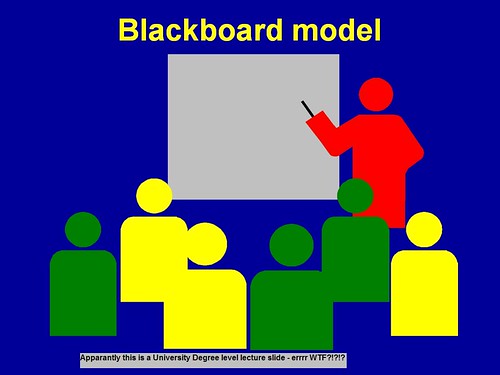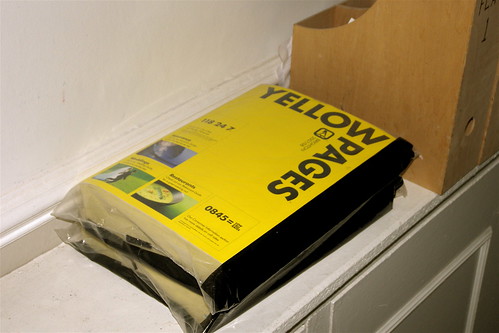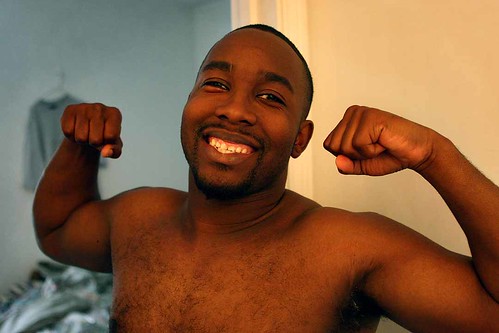To see the checklist that will assist you in immigrating over to Australia within a week please refer to the Introduction post in this series.
Awareness

Three stories, hopefully you’ll see the moral of the tale as we go along.
From Doctors to the Lowest Place in the Totem Pole: For the Skilled Migrants
The family business is an aged and disability care agency. Recently a man, his wife, his brother and his 2 kids came to pay our agency a visit. The man and his wife had been practicing doctors in Sri Lanka for more than a decade but now they were looking for minimum wage work as aged and disability nurses….WHY? They said that they applied to come over as doctors and their application was successful. Upon arrival however, they were informed that in order to practice as doctors in Australia they had to do a course in order to be fully accredited.
Now the problem with this scenario is that:
a) They weren’t informed about this prior to flying over.
b) Had they known, they could easily have flown over to Singapore to do the brief course. However, they were now in Australia with dwindling savings and having to make ends meet while also trying to do the course and take care of their two young children.

The Moral of the Story
Before you come over as a skilled migrant go to painstaking lengths to find out all the qualifications you need to get a job in your field.
My personal recommendations on how to go about this:
a) If you have any contacts in Australia who are in your industry of choice then ask them what qualifications you need to come in and slot into the workforce. If you don’t know anyone in the industry, but you know some people in Australia, get in contact with them and ask them if they know people in the industry and whether they can investigate on your behalf.
b) Speak to the organization that is bringing you over and ask them about any qualifications or immunizations or any prerequisites necessary to get a job once you land in Australia.
c) Go to the Australian yellow pages, get the phone number of and contact a number of firms in your industry of choice, explain to them your situation and ask them what qualifications you would need to work in Australia.

d) Go to Seek (last time I checked Seek, an online job search website, had somewhere between 40-60% of the job search market in Australia) and search for companies advertising for workers in your industry. Get their contact details and explain your current situation. Ask them what qualifications and prerequisites you would need to work in their firm. Contact a number of firms.
Ideally, I would recommend that you do all the above so that you can get a clearer picture from numerous perspectives. Please contact me and let me know of your experiences applying any of the above advice.
I Am a Visual Person But Not a Visual Artist: For the Students
One of the newest arrivals in Australia loves film. She thinks in pictures and has a deep appreciation for visual stimulus, color, contrast etc etc. With that in mind, she decided against becoming a PR professional, which is what she initially intended to do. Instead, she will become a film maker ( a woman after my own heart). So far so good.
She chose all of her subjects and among them was one known as visual arts. Visual arts is basically the skill of drawing things well. This woman couldn’t draw a stick man to light a fire (at least that’s the impression I get from the way she describes herself). She deeply regrets having ever chosen visual arts without fully knowing what the subject is about. Now she is stuck with it when she could have easily chosen something more in line with her film making ambitions, such as photography or cinematography.

The Moral of the Story
If you have flexibility and choice over what subjects you can do per semester then PLEASE PLEASE PLEASE make sure you know what course, and subjects, you are signing up for. Look over the course syllabus for everything you are studying. All major universities have the course syllabuses on their website. Go online, check out what your course is about.
Now for 95% of you, what is in that course syllabus will probably be a mix of English and Klingon i.e. barely understandable. To get a deeper understanding of the syllabus, contact the faculty or department that teaches the course, maybe even the lecturers, and ask them what the course, and its subjects, are all about and what type of job the course equips you to take on. I highly recommend you do this via phone because it’s harder for lecturers and University officials to blow you off when all they have to do is give you a two minute course description over the phone.
In addition to that, I will repeat this tip a lot, if you know someone doing your course in Australia, call them and ask them what the course is like, what subjects teach you what and which majors lead to which jobs. If not, then dig through your social network to find out if a friend of a friend of a friend knows someone doing your course and find out more about your course.

As a student here, you have 30 days after the beginning of a semester to test out each subject and change subjects until you find the subject combination that best suits you (a typical semester has four subjects). Take advantage of this time once you arrive to attend as many classes as you can, especially in your first week, and find out what course is most in line with your goals and with your purpose behind coming here. Speaking of purpose…………
Purpose
I don’t think I need to go into too much detail over this one. Let me say it one more time: have a purpose behind coming here. Have some idea of what you want to accomplish here. Financial freedom; building your constituency a hospital; understanding the cultures and the religions of the world so as to become a better person; a nice peaceful life with a stable income. Whatever it is, hold it tight when you get here and keep your eye on the prize.
I have already spoken about how it’s so easy to get distracted here. The lives of a lot of the people who have been here for a long time speak of people who have basically lived a life where they have moved from one distraction to another. Keep an eye on your definition of success and ignore the rest (Please don’t ignore people though). Then when you succeed, contact me so that I can interview you 😀 and have you on the website as a shining example of possibility (seriously!)

Accommodation
Surprisingly not all students know this: every University here has student accommodation which you can book yourself into and prepay for before you land here. If means allow, pay for at least a semester of student accommodation. A lot of students usually end up leaving student accommodation when they find people that they can share a house with but student accommodation is a great place to get started.
Your Guide
Should that not be feasible, then I strongly recommend you speak to your guide so that they can house you for at least the first two weeks after you land. Within these two weeks you and your guide should search for and find you a home that you can move into.
Some Things to be Aware of Once You Arrive
Whereas you may not necessarily need to know these things before you leave, they are important to keep in mind once you are in Australia.
Room Mates
Almost all students coming over here will have room mates. This is mainly because of the reduced costs of sharing expenses. It is also because of the social aspect. This social aspect will result in a lot of students sharing accommodation with people from the same country or a lot of Africans sharing with Africans etc

My main piece of advice is choose your room-mates very carefully. A lot of young people over here think the art of paying rent is something best left to other people. In addition to that, be prepared for the anxiety that comes from living with someone who doesn’t always live according to your rules. For an example of how this may play out please check out this post by Nyarshady regarding bathing.
If You are Here on Your Own
If you end up being here on your own without any guide or any prepaid accommodation then I recommend that you move yourself into a backpacker hostel to begin with. Unlike homes, backpacker hostels have very few barriers to moving in and you can pretty much get accommodation in one within about five minutes.If you stay in a shared room, a lot of hostels are also cheaper than housing.
The main things to look out for are crime: you are living with poor young people from all over the world. Lock up all your belongings at all time ,including your food and electronics. In addition to that backpacker hostels have a huge party, alcohol and drug culture. Be smart in this regards and continue looking for a home because I can guarantee you the student lifestyle isn’t very compatible with a backpacker’s hostel.

Some Resources for People Looking for Homes
First of all, speak to your University. I was recently informed that Deakin University in Melbourne’s student union has a service where they search for a house for you. Speak to your University and ask them to guide you as to how you can best find a home.
In addition to that you can also check out the real estate websites below. You can sign up via email to receive an email any time a home that fulfills your criteria becomes available. When using these websites, as soon as a home becomes available, GO SEE IT. The competition for housing in a lot of places here in Australia is intense and you want to be the early bird that catches the worm.
Anyone with any more tips and resources in terms of accommodation please send them to me and I will gladly share.
Websites for People Seeking Accomodation
1) Real Estate: http://www.realestate.com.au/
2) Domain:http://www.domain.com.au//

Additional Resources to Help You Find a Home
Taken from Timothy Ferriss bestselling book: The Four Hour Workweek. The pdf file below lists a number of additional online resources you can utilize to assist you in finding a home.
Choices in terms of accommodation (This file is a pdf file that needs Adobe Reader to be read)
Please make sure you look over the novel approaches to the accommodation problem employed by Timothy Ferriss in the above document. In addition to that, let me highly recommend that you purchase Mr. Ferriss book: the Four Hour Workweek
You are Ready To Fly Out

By this point in the checklist you are pretty much ahead of most people who show up. So if you have some spare time enjoy being with your family and friends and saying goodbye to everyone. See you on the other side of the ocean when you land in Australia.
Live a Purpose Driven Life,
Mwangi
Tags: African diaspora, African immigrant, African immigration, Australian immigration
[…] Accommodation […]
I’ll recommend these posts to a friend who is considering studying in Europe. Come to think of it, you could prob make a book of it…for Kenyan students…
@gal: I am glad the post is useful enough for you to share with a friend. I have definitely considered turning this all into a book, or maybe even a consultancy service or something like that. I think I will just finish up the series, see how people I send it to react to it and see what happens from there. Who knows, I may end up being the next non-fiction Rowling or ‘exclusive consultant to African students worldwide’; I’m so glad that the possibilities are endless.
[…] separate from each other. Once you are enrolled in your course, then this is when you can begin exploring all the classes that you are allowed to enroll in over the course of the next 30 days. Don’t jump from class to class for too long though: that will mean that you will have to do […]
[…] article helps you deal with things like accomodation, mailing arrangements, banking, employment, documentation and so on and so […]